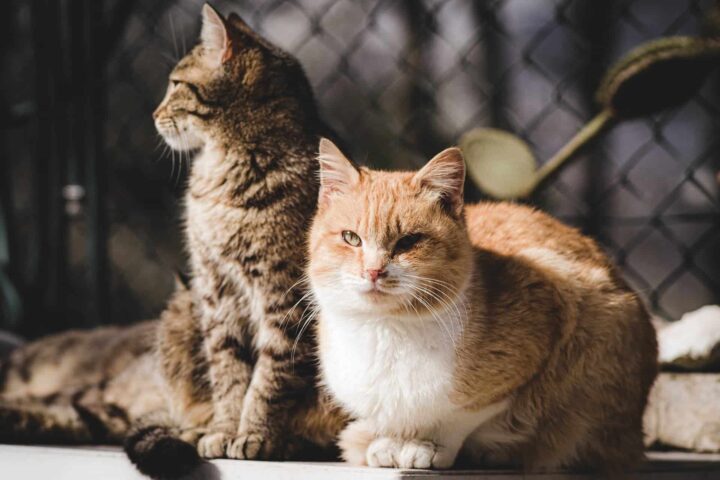Coronavirus medication for humans will be made available for the treatment of cats who are dying in their thousands from feline COVID on the Mediterranean island, officials announced Thursday.
The government gave the green light during a Cabinet meeting, following a recommendation by the Agriculture Ministry, which said cat deaths have “greatly increased this year”.
There is some dispute over how many cats have died, but the outbreak is one of the largest recorded by vets.
Cat COVID has claimed the lives of thousands of the island’s feline population, as it causes life-threatening Feline Infectious Peritonitis (FIP).
“Stocks of preparations that were used to treat human coronavirus cases and are no longer used can be made available,” said a government announcement Thursday.
Medication will be made available to cat owners through the regional offices of the island’s veterinary services.
The Cyprus Veterinary Association called on the government to approve using an anti-COVID pill used in humans, Molnupiravir, over fears the island’s feline population was drastically reducing.
Previously the anti-Covid pill was not authorised for use on animals in Cyprus.
Another antiviral tablet, approved for animal use in Britain and for importation to Cyprus, costs 3,000 to 7,000 euros (about $3,300-$7,700) per cat.
The cost was prohibitive, and there was no supply in Cyprus.
Animal activists claimed Cyprus was turning into an island of dead cats, believing the disease has likely killed almost a quarter of the million-strong population.
The veterinary association argues that up to 300,000 cats dying is an exaggeration, and deaths are under 10,000.
In comments to the Financial Mirror, Dr Demetris Epaminondas, vice president of the Cyprus Veterinary Association, said that although their findings do not support these estimates, they are still deeply concerned.
Epaminondas argued that figures of up to 300,000 cat deaths reported by activists and animal rights organisations are way off the mark, as the association estimates they are in the low thousands.
The vet said the association’s survey of 35 veterinary clinics indicates an islandwide total of only 8,000 deaths.
“Numbers presented by local animal activists and amplified by foreign media outlets simply don’t add up.”
The first “significant spike” in cases was recorded in January, and they continued to rise until April 2023; since then, there has been a stabilising trend.
“However, the outbreak is one of the largest to be ever recorded in veterinarian bibliography,” said Epaminondas.
Deaths increased compared to previous years, noting that around 2,800 clinical cases were recorded in 2022 and 1,350 in 2021.
The alarm was sounded when the British Veterinary Association (BVA) posted a statement on its website, calling UK visitors to the island to take precautions against cat covid.
“Anyone travelling to Cyprus for a holiday should avoid touching cats and make sure to clean the soles of their shoes and suitcase wheels before leaving the island to avoid inadvertently bringing the virus into the UK”, BVA senior vice president Justine Shotton was quoted on the site.
Feline infectious peritonitis (FIP), not transmittable to humans, has rapidly spread across Cyprus recently, being “highly contagious” among cats.
Legend has it that a Roman empress, Helena, first brought cats to Cyprus to do away with poisonous snakes about 1,700 years ago.
But archaeological evidence of cats’ domestication on the island dates back further than anywhere else in the world — to 9,500 years ago at the Neolithic village of Shillourokambos, where the remains of a cat and a human were found deliberately buried together.










